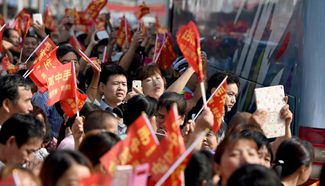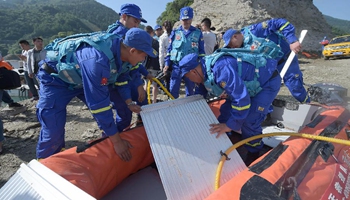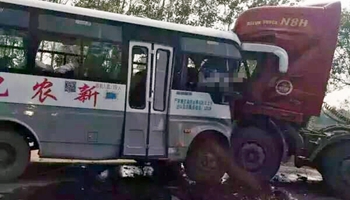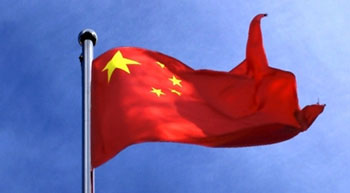by Tai Beiping, Xia Lixin
SINGAPORE, June 5 (Xinhua) -- U.S. defense secretary's China "self-isolation" claims will do no good to peace and stability of the Asia-Pacific region, a Sri Lankan expert said on Sunday on the sidelines of the 15th Shangri-La Dialogue.
"U.S. Defense Secretary Ashton Carter's remarks will not help build bridges between countries. What's important to do at present is to have a collaborative approach, rather than harsh comments," said Asanga Abeyagoonasekera, a visiting lecturer in International Political Economy for University of London in Sri Lanka Royal Institute of Colombo.
In a speech delivered on Saturday at the dialogue, the Pentagon chief claimed China could end up "erecting a Great Wall of self-isolation." Carter made these remarks when talking about issues related to the South China Sea.
"The remarks came with the U.S. pivot to Asia. This region is growing, the U.S. wants more presence here," Asanga told Xinhua, adding that the United States can actually be an important partner in this region, but what regional countries want is involvement through peaceful and collaborative means.
"If you look at the intelligence, surveillance and reconnaissance facilities that the United States built in this area, you can see a serious increase of U.S. presence. With the visit of U.S. President (Barack) Obama and the lifting of arms embargo on Vietnam, the message is becoming even clearer," he said.
The Sri Lankan expert stressed that the region needs more conversation, rather than intentions to isolate any one. He said the problem is there are prejudiced conceptions created by certain groups, and these wrong ideas affect relationships between regional partners.
Speaking of China, Asanga said the country's contribution has been immense as to the region's less developed countries like Sri Lanka. Meanwhile, trade between China and regional partners, such as ASEAN members, has increased tremendously.
"We share similar culture, it's one community," said Asanga, who maintained that China has never been isolated in the history, and will not be isolated in the future.
"If you look at the ancient history of the maritime Silk Road, you will see what the country once achieved," said Asanga, who believes that China's "Belt and Road" initiative is a very good project which will help many countries.
Over 560 delegates, including defense ministers, military officials and experts from 52 nations and regions, gathered here for the Shangri-La Dialogue, an Asia-Pacific defense and security summit.
Commenting on certain arguments during discussions at the dialogue, the Sri Lankan expert said that some external players always try to create trouble as they have interests here.
"For someone, their job is that, to play up the noise, not to bridge the gap. But we should talk more toward achieving points of intersection and connection," he said.










